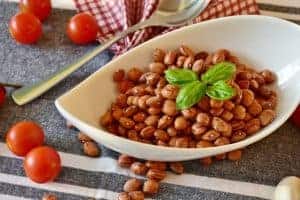
Inulin causing Gas or Bloating?
This is a follow-up to my previous blog post entitled, the Scoop on Inulin. We have already discussed how inulin is a type of fibre that food manufactures use to achieve a “high fibre”claim on their products. Today, I will delve into how inulin works in the body. Also, why some people experience symptoms of intolerance (ie. gas, bloating, stomach pain or diarrhea).
What is inulin and why do some people experience intolerance from it? Click To TweetHow inulin works in the body:
Upon ingestion of inulin, this type of fibre moves through the body undigested (like other fibres) and into the large intestine where it is fermented by your intestinal bacteria. This is why inulin is more specifically called a ‘prebiotic fibre’ meaning that it feeds the existing, healthy gut bacteria allowing them to thrive and function in our intestine. Think of pre-biotics as fertilizers for gut bacteria.
Why do I experience intolerance symptoms?
You might be experiencing intolerance symptoms since inulin is a member of a short-chain carbohydrate group that is poorly absorbed by the body. Therefore, when inulin is fermented by the bacteria in the large intestine, a gas is produced. This gas production can lead to symptoms such as bloating, flatulence, stomach pain and diarrhea.
Does everyone experience symptoms?
Bottom line:
If processed, fibre-rich foods are causing you gas or other symptoms of discomfort, you might be inulin intolerant. If you require professional advice to help in determining food sensitivities, consult a registered dietitian who specializes in this area. For those with inulin intolerance, choose alternative forms of dietary fibre like whole grain breads, bran cereal, oatmeal, nuts, seeds, lentils/legumes. Last, it is important to increase dietary fibre gradually while at the same time increasing water intake.



